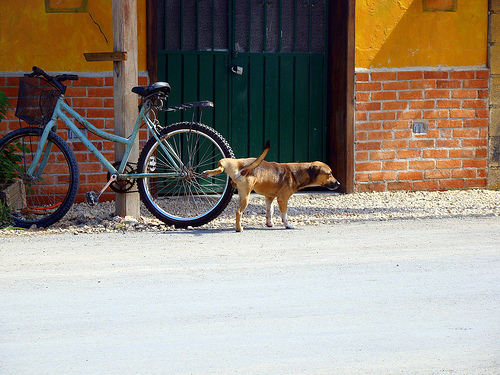Stray Dogs Attack People in Mexico City
Mexico City is home to 22 million people. It is also believed to be the home of between one and five million stray dogs. Many are abandoned without being spayed or neutered, which leads to breeding and creating more stray dogs, therefore increasing the problem at an exponential rate. The situation has become so severe that packs of strays have gone feral and are known to attack humans. Mayor Miguel Angel Mancera has said that his government is looking into launching a spaying and neutering program that would offer free sterilization for people’s pets. Mobile surgical units would travel to the most problematic neighbourhoods and offer their services to residents free of charge. In the meantime though, the streets are filled with animals in need of shelter and food. Many have been abused, some have been tortured, and almost all are malnourished.
Enter Patricia Ruizo and her shelter Milagros Caninos, which roughly translates to Canine Miracle. When Ms. Ruizo’s dachshund Clavo passed away several years ago she struggled with his loss. Ultimately she found a new passion when she saved a stray dog. Since then she has worked to build her sanctuary. Unlike an ordinary animal control facility, her residents are the unadoptable, the sick, abused, elderly, and disabled dogs that would normally be euthanized at a shelter. Although Milagros Caninos does occasionally adopt a dog out, the majority are lifers and they like it that way.
Located just outside the city, on Ms. Ruizo’s country home, the sanctuary is home to 128 dogs. There is a full time staff devoted to their care and the doors are opened to the public once a month for visits from animal lovers. Some of the dogs are famous for the circumstances from which they were rescued. There’s Bobi, who was found nailed to a tree by his ears, dehydrated, malnourished and in tremendous pain. Saving him was the beginning of Ruiz’s mission and Bobi was the first resident of Milagros Caninos. There’s also Almendro, who was addicted to drugs, and Menta, who gets around in his buggy (his rear end is paralyzed after being hit by a car). The most famous though is likely Pay de Limon, whose name means lemon pie. Pay de Limon was found in a trash dumpster with his two front legs missing. They had been cut off with almost surgical precision and then the dog was left to die. It is rumoured that drug cartels have new recruits “practise” dismemberment and other techniques on dogs in preparation for their job. Pay de Limon is believed to have been a victim of these training sessions. After serious fundraising efforts, Ms. Ruizo was able to have a pair of prosthetic front legs made for him. With the assistance of his artificial legs, Pay de Limon can be found running, jumping, and playing with abandon these days.
While Mexico City and its dogs are very lucky to have Ms. Ruizo and Milagros Caninos, the problem will continue to escalate until something is done about the booming canine population on its streets.







A spay and neuter program would be a miracle! And many blessing to Patricia Ruizo!!
[…] streets – and in Juarez there are 200,000 – but that’s nothing compared to the estimated 3 million dogs wondering around Mexico City! It’s said that the Mexican government kills […]
[…] – there is no way to know a set number of dogs which live without homes in Mexico although this 2013 article places the figure at an estimated one to five million in Mexico City ALONE. One […]
[…] http://allpetnews.com/stray-dogs-becoming-epidemic-in-mexico-city […]
Comments are closed.